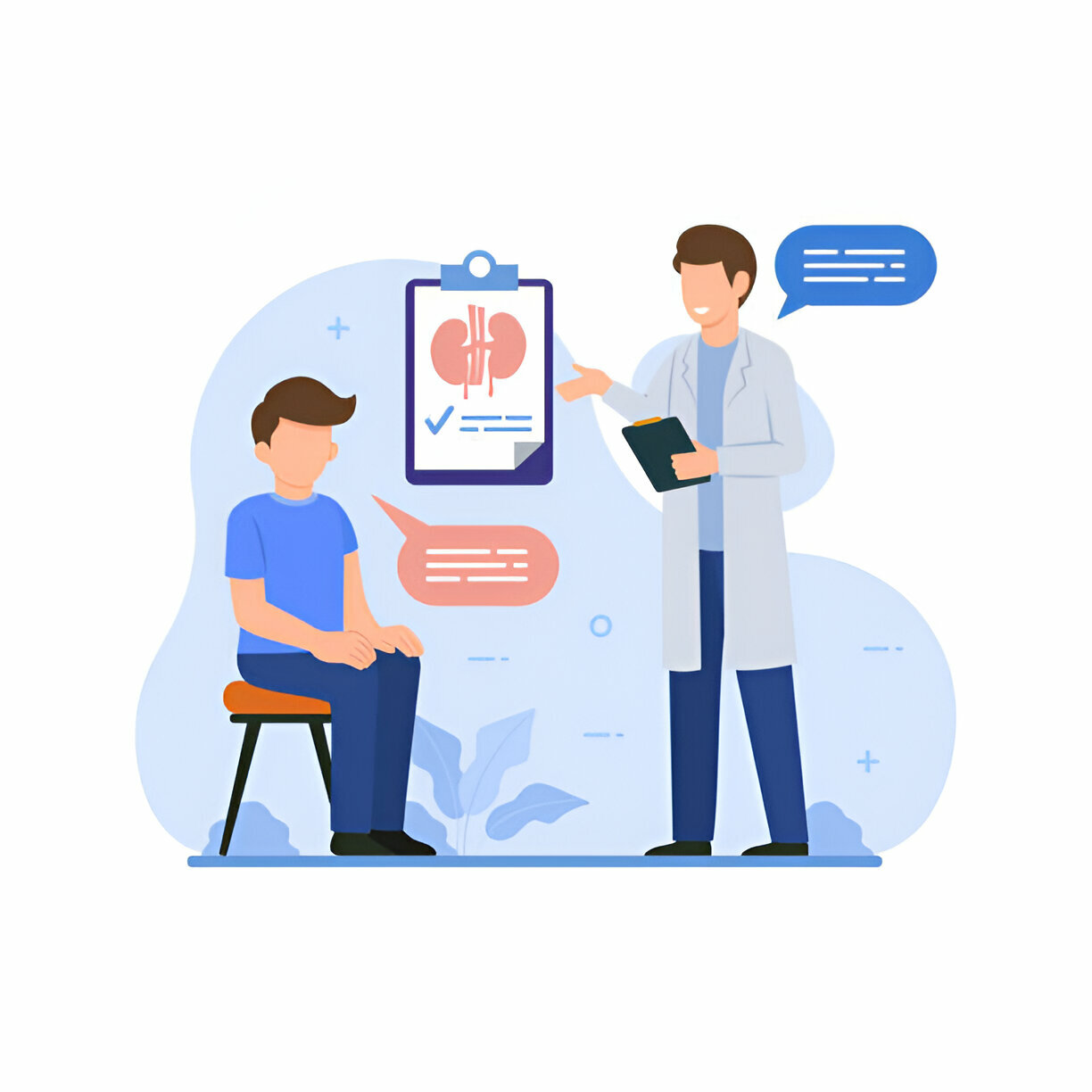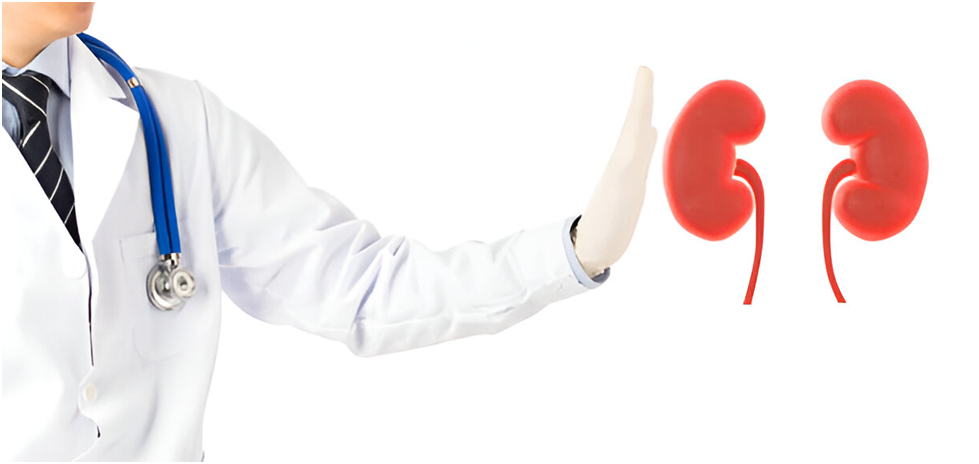
Kidney infections in men
July 23, 2024
What’s a Swap Kidney Transplant and How Does It Work?
October 10, 2024Introduction
Kidneys are vital organs that play a crucial role in filtering waste products from the blood, regulating blood pressure, balancing fluids, and producing hormones necessary for the body’s functioning. However, like any other organ, the kidneys are susceptible to various problems that can impact their performance.
Understanding the common kidney problems, their symptoms, and when to seek medical help is essential to maintain overall health. For those experiencing kidney issues, consulting the Best Kidney Doctor is imperative to receive the right diagnosis and treatment.
In this article, we will explore common kidney problems and guide you on when it’s necessary to seek help from a professional, such as Dr. Neeraj, a renowned kidney specialist.
Understanding the Role of the Kidneys
Before diving into common kidney problems, it’s important to understand the role of the kidneys in the body. The kidneys are two bean-shaped organs located on either side of the spine, just below the rib cage. They perform several vital functions, including:
- Filtering Waste: The kidneys filter out waste products and excess substances from the blood, excreting them through urine.
- Regulating Blood Pressure: They help regulate blood pressure by balancing salt and water levels in the body.
- Electrolyte Balance: The kidneys maintain the balance of electrolytes like sodium, potassium, and calcium, which are essential for nerve and muscle function.
- Producing Hormones: They produce hormones such as erythropoietin, which stimulates red blood cell production, and renin, which helps regulate blood pressure.
When the kidneys are compromised, these functions can be disrupted, leading to serious health issues. Recognizing the signs of kidney problems early and consulting the Best Kidney Doctor, such as Dr. Neeraj, can prevent further complications.
Common Kidney Problems
Several kidney problems can affect the kidneys’ ability to function properly. Some of the most common include:
Chronic Kidney Disease (CKD)
Chronic Kidney Disease is a long-term condition where the kidneys gradually lose function over time. CKD is often a result of other underlying health conditions like diabetes or high blood pressure. Early stages of CKD may not present noticeable symptoms, but as the disease progresses, symptoms may include:
- Fatigue and weakness
- Swelling in the legs, ankles, and feet due to fluid retention
- Shortness of breath
- Difficulty concentrating
- Persistent itching
- Changes in urine output or color
When to Seek Help: If you have risk factors like diabetes, high blood pressure, or a family history of kidney disease, it’s crucial to regularly monitor your kidney function. Consult the Best Kidney Doctor, such as Dr. Neeraj, if you notice any of the above symptoms or if you’re diagnosed with early-stage CKD.

Acute Kidney Injury (AKI)
Acute Kidney Injury is a sudden loss of kidney function, often occurring due to severe dehydration, infection, or the use of certain medications. AKI can be life-threatening if not treated promptly, but it is often reversible with timely intervention. Symptoms of AKI include:
- Decreased urine output
- Swelling in the legs, ankles, or around the eyes
- Fatigue
- Confusion or difficulty concentrating
- Shortness of breath
- Nausea and vomiting
When to Seek Help: AKI is a medical emergency. If you experience a sudden drop in urine output or any of the other symptoms mentioned, seek immediate medical attention. Early diagnosis and treatment by the Best Kidney Doctor, like Dr. Neeraj, can prevent permanent kidney damage.
Kidney Stones
Kidney stones are hard deposits of minerals and salts that form in the kidneys. They can vary in size and may cause intense pain when passing through the urinary tract. Common symptoms of kidney stones include:
- Severe pain in the back, side, or lower abdomen
- Pain during urination
- Blood in the urine
- Frequent urge to urinate
- Nausea and vomiting
When to Seek Help: If you suspect you have a kidney stone, it’s important to seek medical attention. Small stones may pass on their own with increased fluid intake, but larger stones may require medical intervention, such as lithotripsy or surgery. Consulting the Best Kidney Doctor, such as Dr. Neeraj, can help you determine the best course of treatment.

Urinary Tract Infections (UTIs)
Urinary Tract Infections are common, particularly in women, and occur when bacteria enter the urinary tract. If left untreated, a UTI can spread to the kidneys, leading to a more serious condition known as pyelonephritis. Symptoms of a kidney infection include:
- Fever and chills
- Back or side pain
- Frequent and painful urination
- Cloudy or foul-smelling urine
- Nausea and vomiting
When to Seek Help: While mild UTIs can often be treated with antibiotics, a kidney infection requires prompt medical attention. If you experience symptoms of a UTI along with fever and back pain, seek help from the Best Kidney Doctor, such as Dr. Neeraj, to prevent complications.
Glomerulonephritis
Glomerulonephritis is a condition where the tiny filters in the kidneys, known as glomeruli, become inflamed. This inflammation can lead to kidney damage and affect the kidneys’ ability to filter waste. Symptoms may include:
- Blood or protein in the urine
- High blood pressure
- Swelling in the face, hands, feet, and abdomen
- Fatigue
- Reduced urine output
When to Seek Help: If you notice blood in your urine or experience unexplained swelling, it’s essential to seek medical advice. Early diagnosis and treatment by the Best Kidney Doctor, like Dr. Neeraj, can prevent the condition from progressing to more severe kidney damage.
Polycystic Kidney Disease (PKD)
Polycystic Kidney Disease is a genetic disorder characterized by the growth of numerous cysts in the kidneys. These cysts can lead to enlarged kidneys and impair their function over time. Symptoms of PKD include:
- High blood pressure
- Pain or tenderness in the abdomen
- Blood in the urine
- Frequent urination
- Kidney stones
- Urinary tract infections
When to Seek Help: PKD can lead to chronic kidney disease and other complications if not managed properly. If you have a family history of PKD or experience any of the symptoms listed, consult the Best Kidney Doctor, such as Dr. Neeraj, for a thorough evaluation and appropriate treatment plan.

Nephrotic Syndrome
Nephrotic Syndrome is a kidney disorder that causes the body to excrete too much protein in the urine. It can result from damage to the glomeruli and is associated with other conditions like diabetes or lupus. Symptoms include:
- Severe swelling, especially in the legs and around the eyes
- Foamy urine due to high protein levels
- Weight gain from fluid retention
- Fatigue
- Loss of appetite
When to Seek Help: If you notice significant swelling or changes in your urine, it’s important to consult a healthcare provider. Nephrotic Syndrome requires specialized care, and seeing the Best Kidney Doctor, like Dr. Neeraj, can help manage the condition and prevent further complications.
When Should You Seek Help?
Knowing when to seek help for kidney problems can make a significant difference in the outcome. Here are some general guidelines:
- Persistent Symptoms: If you experience persistent symptoms such as swelling, changes in urine, or unexplained fatigue, it’s important to seek medical advice.
- Sudden Onset of Symptoms: A sudden decrease in urine output, severe pain, or symptoms of infection require immediate medical attention.
- Family History: If you have a family history of kidney disease or conditions like PKD, regular check-ups with the Best Kidney Doctor are essential for early detection and management.
- High-Risk Factors: Individuals with diabetes, high blood pressure, or autoimmune disorders should be particularly vigilant about their kidney health and consult a specialist if they notice any changes.
- Routine Check-ups: Even in the absence of symptoms, routine check-ups with a kidney specialist, such as Dr. Neeraj, can help monitor your kidney function and catch any potential issues early.
Preventing Kidney Problems
While some kidney problems are unavoidable, others can be prevented through lifestyle changes and proactive health management. Here are some tips for maintaining healthy kidneys:
- Stay Hydrated: Drinking plenty of water helps the kidneys filter waste and prevents kidney stones.
- Control Blood Sugar: If you have diabetes, keeping your blood sugar levels in check can prevent kidney damage.
- Monitor Blood Pressure: High blood pressure is a leading cause of kidney disease, so it’s important to manage it through diet, exercise, and medication if necessary.
- Limit Salt Intake: Excess salt can lead to high blood pressure and strain the kidneys.
- Avoid Overuse of Painkillers: Over-the-counter pain medications can cause kidney damage if used excessively. Always follow the recommended dosage and consult a doctor if you need long-term pain management.
- Maintain a Healthy Diet: A balanced diet rich in fruits, vegetables, and whole grains can support kidney health and prevent obesity, a risk factor for kidney disease.
- Avoid Smoking and Excessive Alcohol Consumption: Both smoking and excessive alcohol intake can damage the kidneys over time.
Conclusion
Kidney problems can have a profound impact on your overall health and quality of life. By understanding the common kidney issues and knowing when to seek help, you can take proactive steps to protect your kidney function. Regular check-ups, especially if you have risk factors like diabetes or high blood pressure, are crucial for early detection and management of kidney problems

